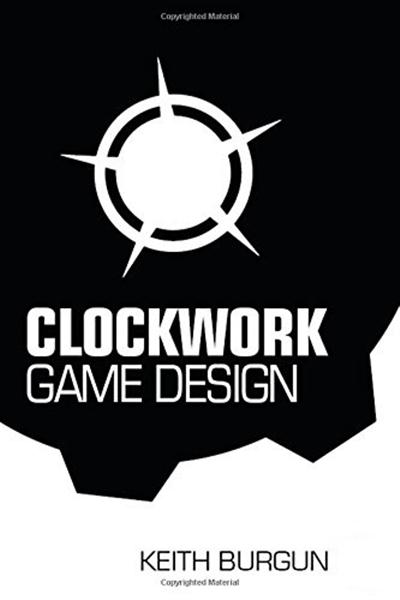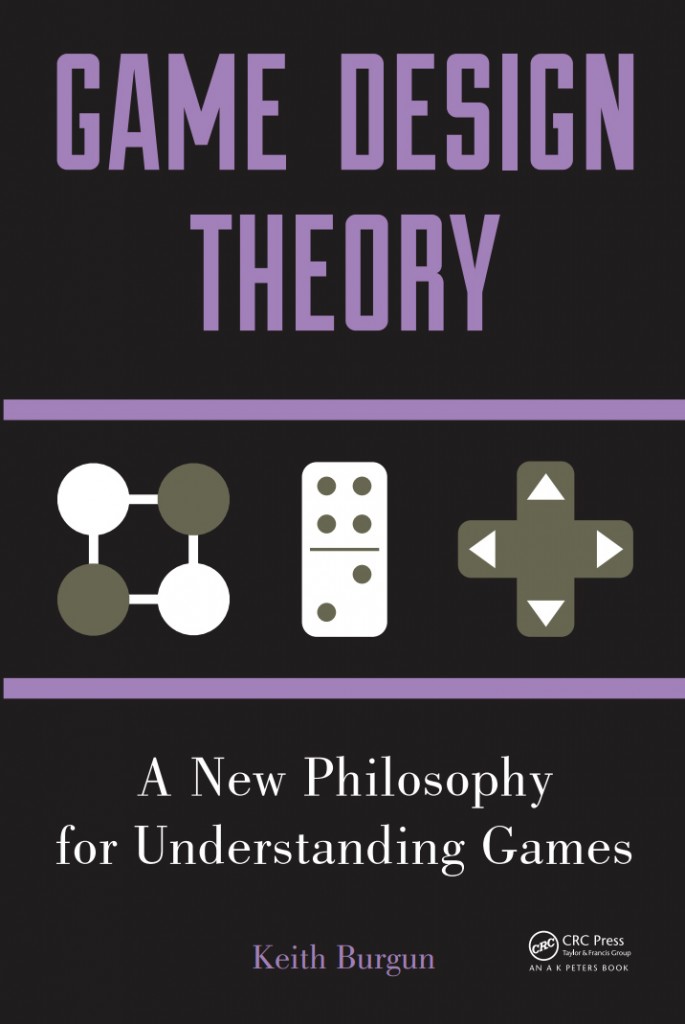Only by finding and focusing on a core mechanism can you further your pursuit of elegance in strategy game design.
Clockwork Game Design
is the most functional and directly applicable theory for game design.
It details the clockwork game design pattern, which focuses on building
around fundamental functionality. You can then use this understanding to
prescribe a system for building and refining your rulesets. A game can
achieve clarity of purpose by starting with a strong core, then removing
elements that conflict with that core while adding elements that
support it.
Filled with examples and exercises detailing how to
put the clockwork game design pattern into use, this book is a must-have
manual for designing games.
- A hands-on, practical book that outlines a very specific approach to designing games
- Develop the mechanics that make your game great, and limit or remove factors that disrupt the core concept
- Practice designing games through the featured exercises and illustrations
Despite the proliferation of video games in the twenty-first century, the theory of game design is largely underdeveloped, leaving designers on their own to understand what games really are. Helping you produce better games, Game Design Theory: A New Philosophy for Understanding Games presents a bold new path for analyzing and designing games.
The author offers a radical yet reasoned way of thinking about games and provides a holistic solution to understanding the difference between games and other types of interactive systems. He clearly details the definitions, concepts, and methods that form the fundamentals of this philosophy. He also uses the philosophy to analyze the history of games and modern trends as well as to design games.
Providing a robust, useful philosophy for game design, this book gives you real answers about what games are and how they work. Through this paradigm, you will be better equipped to create fun games.
With a foreword from legendary board game designer Reiner Knizia.
Any game designer would benefit by understanding Burgun’s philosophy, even if it becomes just a small part of our larger understanding of the massive product category we call “video games.”
Ryan Rigney, WIRED Contributor
“Most books in this genre make a lot of statements that, while interesting, are too vague to be falsifiable. They are typically afraid to set any clear definition of `game’ lest some fringe case be excluded, and their practical value suffers as a result. Keith Burgun’s book sets clear definitions, supports those definitions with concrete examples, and sticks to those definitions throughout the books. That kind of formalism is just what the field of game design needs, as Reiner Knizia notes in the book’s forward.
Robert M. Seater, Game Designer, Staff @ MIT


You must be logged in to post a comment.